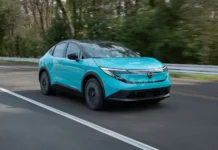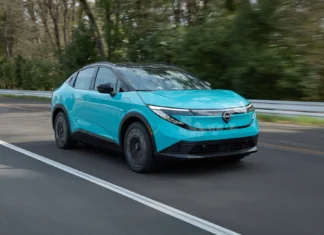
Tesla put out another price increase on its Model 3 and Model Y.
Fortunately, if you’re in the market for either car, this price increase isn’t a huge one to bear if you put in your order now. The electric automaker increased prices for its two most popular models by $1,000. As of right now, ordering a base Model 3 will set you back $46,490, while the Long Range costs $53,490 and the Performance is $58,990.
As for the Model Y, the dual-motor Long Range kicks of at $61,990, while the Performance runs up to $64,990. Mind you, federal tax credits for Tesla models have sunset by this point. You may be able to get some state tax credits for buying one of these cars, but at this point the manufacturer’s set price is more or less what you’ll pay, unlike other models that haven’t yet hit the 200,000-unit threshold to phase out the full $7,500 federal incentive. GM is the only other automaker whose cars are not eligible for the federal EV credit.
Reuters first pointed out Thursday morning’s price change, and tracked Tesla’s hikes over time. The company’s taken a slower, steadier approach to the issue than, say, Rivian did with its increases (which it quickly walked back for current order holders as of March 1). Still, Tesla has bumped up its starting points a dozen times over the past year, resulting in a 20% higher asking price for the Model Y Long Range. The Model 3 Long Range, by comparison, has gone up a less painful 10.6%.
Chinese-built cars are also seeing a 10,000 yuan ($1,582.40) price hike in that market.

Supply issues could stall more affordable EVs
Amidst all the headache throughout the auto industry over the past two years, we’ve seen companies tamping down on prospects of more affordable electric cars. Tesla scrapped the idea of launching a smaller, cheaper ‘Model 2’ earlier this year, delaying it (and all its other launches) until at least 2023.
There are sub-$40,000 EVs on the market, but surging costs across the industry could raise prices on those cars as well. What’s more, supply shortages could stall or even reverse the downward trend in battery manufacturing costs, which could push back the notion of achieving price parity with gas-powered cars — at least in the near-term. As Reuters also points out, rising costs for critical materials like lithium and nickel could dampen the rapid expansion of electric models, even as companies across the spectrum drop billions to invest in manufacturing for EVs.
























